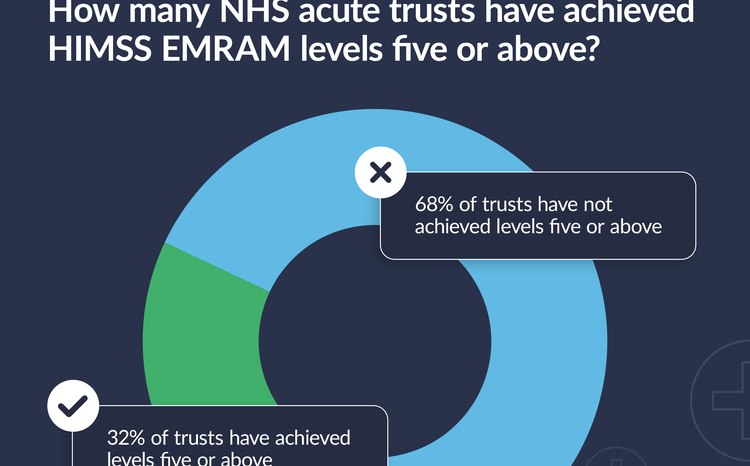Only one percent of acute NHS trusts have migrated to Windows 10
- 19 February 2018

Research from Digital Health Intelligence has found that only one percent of acute NHS trusts have fully migrated to Windows 10, despite the fact that support for Windows 7 expires in two years’ time.
Infrastructure data gathered by DHI in 2017 found that 74% of acute trusts and 76% of mental health use Windows 7 as their only operating system. Meanwhile, only 1% of acute trusts and 3% of mental health trusts have made the switch Windows 10.
The results suggest that NHS trusts may struggle to move away from Windows 7 before official support for the software expires in 2020.
An NHS Digital spokesperson told Digital Health News that trusts were expected to do everything in their power to ensure they had moved away from unsupported – or soon to be unsupported – systems as soon as possible.
“NHS Digital is currently working with Microsoft and system partners on how best to provide a framework to move to Windows 10,” the spokesperson said.
“Any subsequent agreement will be designed to expedite roll out and support organisations.
“The migration itself is however a local activity, and NHS organisations are all aware that support for the software ends in January 2020.”
Windows continues to dominate the NHS operating system market, with 99% of acute and mental health trusts using Microsoft Windows as their main desktop platform.
Most trusts acquired Windows 7 as part of an Enterprise Wide Agreement (EWA) signed between the NHS and Microsoft in 2001. That expired in July 2010, and since then there has been no visible attempt to move trusts onto new software platforms.
It is understood that NHS England is currently in negotiations with Microsoft to put in place a new enterprise-wide agreement for Microsoft Office software. However, the organisation has yet to acknowledge that such talks are taking place.
Will Smart, chief information officer of NHS England, is understood drawing up a deal that focuses on enabling NHS trusts throughout England to migrate to the latest Windows platforms.
There have been calls from some corners of the market to reduce the NHS’s reliance Microsoft Windows in the wake of WannaCry, which exploited a vulnerability in the software to lock trusts out of computers last May.
NHS organisations have proved unwilling to move away from Windows platform, however, citing concerns around the level of support for open-source alternatives and costs associated with implementations and updates.
This has left NHS organisations having to procure and manage individual licence arrangements locally.
Over the coming two years, replacing legacy operating systems will be key for the NHS, with the support for Windows 7 expiring in January 2020.
The data collected by DHI suggests NHS organisations will face challenges similar to those trusts experienced when Windows XP support ended in 2014, with budget constraints and fixed governance IT strategies continuing to impact the rate of transition.
The full set of 2017 infrastructure data is available to Gold and Platinum subscribers and NHS users with a Digital Health Intelligence for Networks subscription.
To find out more, please email intelligence@digitalhealth.net.





1 Comments
it doesn’t make sense to move away from Windows when you consider the cost of the implementation, support and engineering required for any open source option. Microsoft will also provide support for when issues occur if your product is within support.
What ACTUALLY needs to happen is that the NHS really needs to proactively create a support roadmap and subsequent implementation plan so they’re not constantly chasing their infrastructure tail.
Comments are closed.